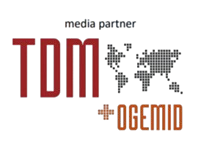
Call for Papers
2025 Taipei International Conference on Arbitration and Mediation
The Chinese Arbitration Association, Taipei (“CAA”), and the Asian Center for WTO & International Health Law and Policy, College of Law, National Taiwan University (“ACWH”) will jointly host the “2025 Taipei International Conference on Arbitration and Mediation” from 28 to 29 October 2025 in Taipei, Taiwan.
Theme
The conference theme is “The 40th Anniversary of UNCITRAL Model Law and the 70th Anniversary of CAA.” The UNCITRAL Model Law on International Commercial Arbitration, adopted in 1985, is a crucial landmark of international dispute resolution laws. The CAA, established in 1955, which is listed as one of the five institutions in the white list in 2023 by GAR for Asia-Pacific Regional Arbitration Centres, lays down a crucial foundation for Taiwan’s development in arbitration and other methods of alternative dispute resolution. This year marks the UNCITRAL Model Law’s 40th anniversary and CAA’s 70th anniversary. It is a joyful occasion to reflect on the UNCITRAL Model Law’s evolution, implementation, and future development, and how it informs Taiwan’s dispute resolution laws. For instance, what is the comparative development in specific arbitration-related topics in different jurisdictions? What is the development of international dispute resolution in specific types of disputes? How would the changing landscape of international politics and economics affect or reshape international dispute resolution?
Submission
Submissions of abstracts (500 to 1000 words) on any of the following topics are welcome.
How is the UNCITRAL Model Law adopted and practiced in different legal systems or jurisdictions? What is its comparative development?
UNCITRAL Model Law represents the effort of the international dispute resolution community in harmonizing international dispute resolution laws, which is a tremendous achievement considering the divergence in dispute resolution laws among different legal systems. However, different legal systems might implement the UNCITRAL Model Law differently, and new international dispute resolution issues are emerging. How do different jurisdictions address these emerging topics? To what extent does the UNCITRAL Model Law shed light on these topics, or need to be revisited?
Suggested topics include:
Mandatory arbitration;
Multi-tier arbitration agreement
Ethical rules in arbitration;
Conflict of interest rules for arbitrators;
Procedural transparency and arbitration;
Civil procedures and arbitral proceedings;
Ex aequo et bono;
Iura Novit Curia;
Reasons for arbitral awards;
The appeal of arbitral awards;
Publication of arbitral awards;
Third-party funding in arbitration;
Private international law issues in arbitration;
Other topics related to the UNCITRAL Model Law’s comparative development.
How does international dispute resolution develop in specific sectors or disputes, and how should international dispute resolution laws accommodate the special needs of different disputes?
New types of disputes arise following economic, social, and technological development. Following this trend, international dispute resolution has been practiced in emerging sectors, e.g., green energy or FinTech. In the meantime, new legal issues arise in this modern world, e.g., human rights and other sustainability management in the supply chain. These new types of disputes were certainly beyond the imagination when the UNCITRAL Model Law was adopted in 1985. What opportunities and challenges do these emerging disputes bring to international dispute resolution? Do these disputes possess special characteristics that require different rules or regimes? Are the existing international dispute resolution laws capable of dealing with them?
Suggested topics include:
Construction disputes;
Energy disputes;
FinTech disputes, e.g., digital asset and blockchain;
Business and human rights disputes;
Other topics related to international dispute resolution and specific types of disputes.
How would the recent developments in international politics and economics affect or reshape international dispute resolution?
Changes in international geopolitics and geoeconomics have been dramatic in recent years. How do these changes affect international dispute resolution laws? How can the existing laws, including the UNCITRAL Model Law, adapt to this changing world? Should international dispute resolution laws be redesigned? If so, how?
Suggested topics include:
Commercial disputes and geopolitical economy;
Investment disputes and geopolitical economy;
Clausula rebus sic stantibus;
Other international dispute resolution topics related to international politics and economics.
Review Process
Abstracts must be submitted by July 21, 2025. The organizing committee will select abstracts and announce the results on July 31, 2025. Applicants whose abstracts pass the review process will be invited to present at the conference. The invited presenters must submit their complete and unpublished papers by September 30, 2025.
Presenters are also invited to submit their papers to the Contemporary Asia Arbitration Journal (CAAJ, an ESCI-indexed journal published by ACWH on a semiannual basis) for a peer-review process seeking possible publication.
Important Dates (based on Taipei time)
- Abstracts submission deadline: July 21, 2025
- Abstracts acceptance notification: July 31, 2025
- Full paper submission deadline: September 30, 2025
- Conference dates: October 28-29, 2025
Conference/Paper Language
All papers need to be written and presented in English.
Guidelines for Submission of Abstracts and Papers
Each prospective author is invited to submit an abstract and curriculum vitae in a Word or PDF file to wtocenter@ntu.edu.tw. The abstract submission must include the following information:
Paper Title;
Name, middle name, and surname of the author;
Affiliate institution and title;
Email address;
Abstract (500 to 1000 words);
Up to 10 keywords.
Authors are strongly encouraged to use Bluebook citations for their abstract and full paper submissions.
Contact information
Sunny Guan Ye Li (Ms), Asian Center for WTO & International Health Law and Policy, College of Law, National Taiwan University
(Official website: http://www.ntu.law.acwh.tw/)
Tel: +886-2-33663366 ext. 55234
Fax: +886-2-33668965
Email: wtocenter@ntu.edu.tw
Elsa Yeh (Ms), Chinese Arbitration Association, Taipei
(Official Website: http://www.arbitration.org.tw/english/index.php)
Tel: +886-2-27078672 ext. 11
Fax: +886-2-27078642
Email: elsayeh@adr.org.tw

| name | size | download |
|---|---|---|
| Call for Papers_2025 Taipei International Conference on Arbitration and Mediation.pdf | 215.51 K |